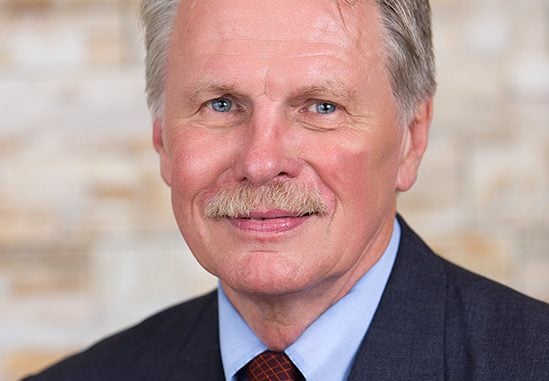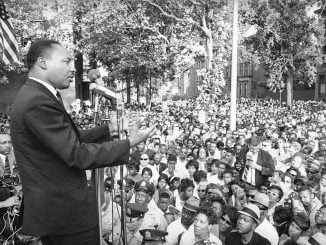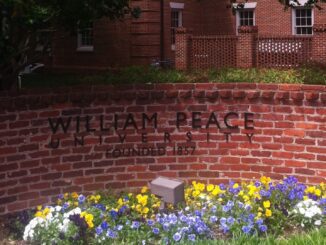
This is a landmark year for Campbell Law School. We are in the midst of our 10/40 celebration, marking the 40th anniversary of our first graduating class and the 10th anniversary of our move from Buies Creek to downtown Raleigh. Just as significant to me, Campbell Law was just ranked by preLaw Magazine as one of the ten most devout Christian schools in the nation.
The ranking is based on our religious-focused curricula, organizations, and student involvement. It crystalizes much of what my tenure as dean has been about.
Six years ago, I hung up my robe on the US Bankruptcy Court where I had spent the previous 15 years serving my community and helping those in financial trouble reset the course of their lives.
My faith always reminded me that, no matter how obnoxious or arrogant the parties and lawyers in front of me, all were children of God entitled to be treated with respect in my courtroom. When it came to decisions, the rules were those of our secular democracy.
With my practicing legal career behind me, I took the helm of Campbell Law School in North Carolina’s booming capital city, where I’ve worked with an amazing group of students, faculty, and staff.
Becoming the top administrator of a faith-based law school took some deep thought. A reading of the law school’s principles gave me comfort, as they reflect our faith-based orientation but also pledge civility, open-mindedness, and freedom of belief.
After a couple of years, I started to wonder: “When are we going to step out and show this growing community what a faith-based law school looks like?”
I committed myself, and our school, to be leaders in practicing the faith that we professed via a focus on three tenets expressed in my favorite verses.
“What doth it profit, my brethren, though a man say he hath faith, and have not works? Can faith save him?” – James 2:14
In our city, as in any community, there is a tremendous support network ready to catch our most vulnerable when they need it. In our community, this hero work is done by groups like the Raleigh Rescue Mission, StepUp Ministries and Urban Ministries of Wake County.
They are doing the Lord’s work.
However, for so many individuals, their support only went so far as legal issues prevented them from receiving the government services and support they needed and were entitled to receive.
In meetings with these groups and my faculty, the idea sprung up to supply the necessary legal services to these agencies’ clients who were ready to make a transition but hit roadblocks. With a seed grant from Z. Smith Reynolds Foundation, we rented a small cottage proximal to necessary services and public transportation and began supporting clients. The results have been exceptional with dozens of people receiving the support they need and deserve and our students gaining real work experience while making a difference.
“Blessed are the peacemakers, for they shall be called the children of God.” – Matthew 5:9
Long before my tenure as Dean, our school founded one of its first clinics focused on juvenile and restorative justice. The goal from the beginning has been to intercept our troubled youth at pivotal points where we believe a transition can be made for the better. Working with schools to mediate conflicts before a criminal referral, we’ve helped reduce the school to prison pipeline.
It doesn’t stop at school. We have had Superior Court judges invite our faculty and students into their courts to attempt to reach resolutions via the same techniques that have proved so successful in our clinic.
“There is neither Jew nor Greek, there is neither slave nor free, there is no male or female, for you are all one in Christ Jesus.” – Galatians 3:28
Issues of diversity confront all of us in higher education. My view is that exposure to people of widely varying beliefs, backgrounds, nationalities, ethnicities, and races is the key to realizing our shared humanity.
Through a rather remarkable set of circumstances, I have been privileged to work with nascent judiciaries in developing African democracies for more than two decades.
It has changed my life, and a similar experience will likely have the same impact on my students. I am eschewing the popular summer programs in Europe (of which we have two) and working to create a residential summer program of study in sub-Saharan Africa.
There is no better way to show our students that God’s children come in infinite forms, and nobility and wisdom come in a variety of packages.
Campbell Law School Dean J. Rich Leonard is a former United States Bankruptcy Judge for the Eastern District of North Carolina.




